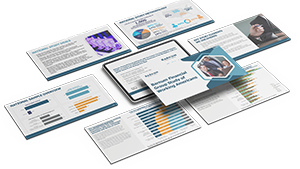
“It’s the economy stupid” was first uttered by James Carville during the 1996 presidential campaign and it has become a pithy reminder of how the state of the economy can swing elections one way or the other. Carville was talking about the economy at large, but the economy can impact different age groups in diverse ways, especially an economy that is dealing with inflation.
The New York Times recently ran the headline “Inflation Gut-Punches Millennials” showing the contrast between millennials versus other age groups. Baby boomers have lived through runaway prices before. There was explosive inflation in the 1970s, and the Federal Reserve pushed interest rates into the double digits to slow the economy and dampen inflation. The Fed succeeded, but the slowdown morphed into a recession. However, many of today’s millennials, (age 25 to 40) and the younger Gen Z largely have missed the tempests that roiled the baby boomers. Prices stayed relatively stable for much of the 2000s. But the onset of COVID has ushered in many cross currents in the economy. Monetary policy was geared to keeping the economy afloat and until fairly recently the policy was working well. The economy has rebounded, but prices of many everyday items have surged. There is a lot of disagreement as to whether or when the cost of goods and services will settle down. At the moment, though, most prices show no sign of leveling out, and some structural problems like the worldwide supply chain will take time to solve.
Just how millennials will react to inflation, and how vulnerable they are is an open question, too. Labor Department data show that younger people spend in sectors where prices are rising sharply such as used vehicles, rent, and eating out. Something that may literally eat away at millennials and be an omen for the future is the demise of the 99-cent slice of pizza, Times reporter Jeanna Smialek notes. Not every millennial is pessimistic about weathering inflation, though. Kristin Schwab at Marketplace interviewed a millennial who noted that his generations might be better equipped to deal with inflation because they have a little more wage power and job fluidity compared with older workers and people on fixed incomes.
Arguments about the life expectancy of the current inflation rage back and forth, but for millennials a more important question is what steps they can and should they take. There are a host of recommendations for coping with inflation, ranging from investing in products like commodities, real estate, or gold, to Treasury Inflation-Protected Securities, or TIPS, whose principal value is indexed to the rate of inflation. However, before a millennial or anyone takes a major step, they should speak with a financial advisor. No one knows for sure how long inflation will last, and it makes sense to get some guidance from an experienced professional. One piece of advice holds true no matter what the economic environment is: if you have been saving, keep it up. Economic and market climates change over time, and saving for a happy and healthy retirement pays off.




